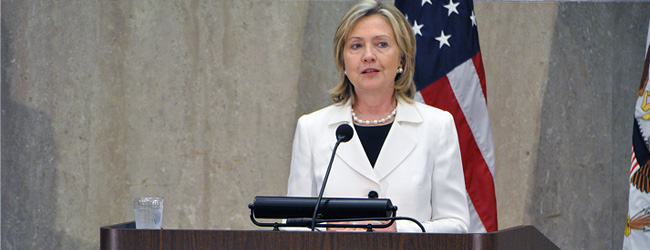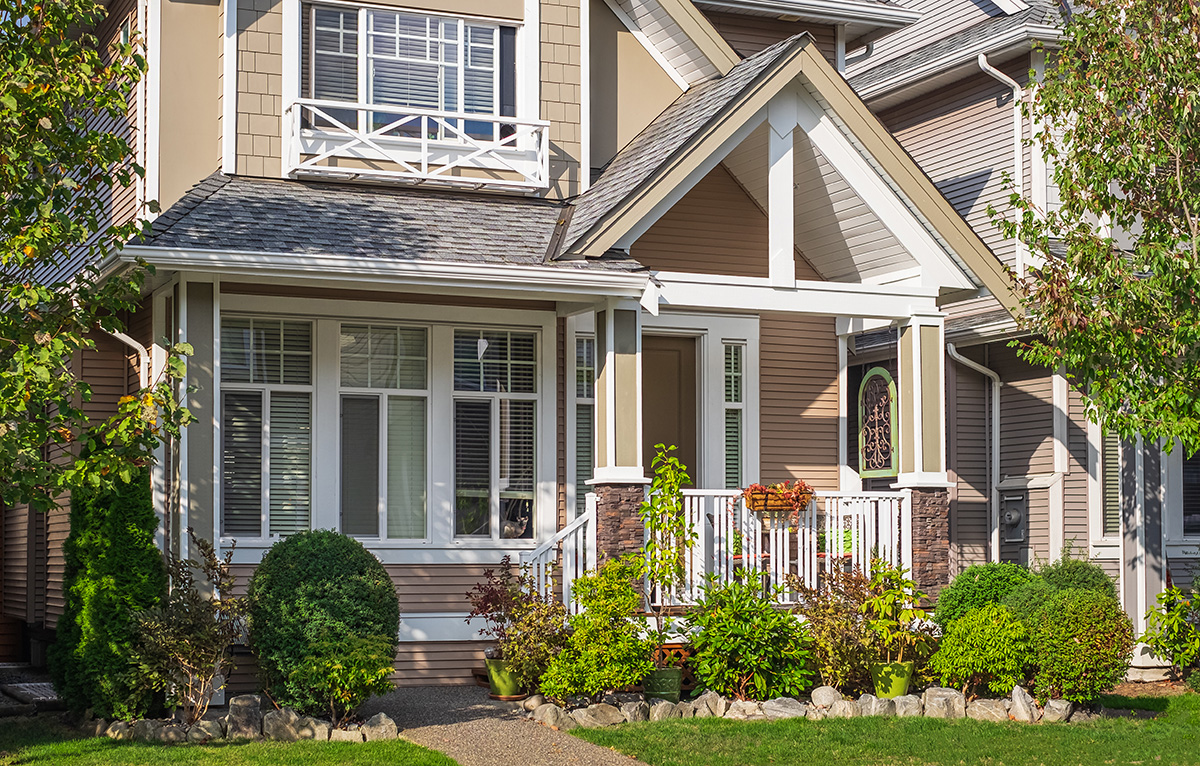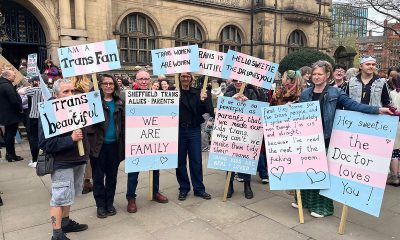Living
State Department identifies LGBT abuses overseas
Report details findings from 194 countries

The U.S. State Department published its annual report on Friday evaluating the state of human rights overseas and revealing that LGBT abuses continue to persist in many places abroad.
Introducing the findings in a media appearance Friday, Secretary of State Hillary Clinton said the report “usually generates a great deal of interest” among those following human rights and said she hopes the new report will do so again this year.
“Societies flourish when they address human rights problems instead of suppressing them,” Clinton said. “And we hope that this report will give comfort to the activists, will shine a spotlight on the abuses, and convince those in government that there are other and better ways.”
The report details the status of human rights in 194 countries over the course of 2010 and marks the 35th year in which the State Department has produced the findings, which are required by congressional mandate.
Clinton drew particular attention to the report’s identification of abuses against LGBT people overseas and said monitoring this activity is a part of the mission for the State Department.
“Because I believe, and our government believes, that gay rights are human rights, we remain extremely concerned about state-sanctioned homophobia,” Clinton said.
In addition to unveiling the report, Clinton also announced the launch of a new State Department website: humanrights.gov. The site is set to assemble reports, statements and other updates from around the world and is intended to become a depository of global human rights information.
Mark Bromley, chair of the Council for Global Equality, commended the State Department for publishing the findings and said the LGBT reporting “continues to be robust.”
“The introduction to the report cites an escalation of violence, persecution and discrimination against LGBT persons as one of three alarming human rights trends in the world last year,” Bromley said. “They note that this also translates into a denial of economic opportunity for many LGBT individuals.”
Bromley added the report demonstrates Clinton has made LGBT rights one of the State Department’s top priorities and said he looks forward to this continued U.S. engagement.
“That is due to the secretary’s leadership, but also to the many committed human rights officers in the State Department and in U.S. embassies around the world who are now actually meeting and interacting with LGBT human rights activists on a regular basis,” Bromley said.
The State Department details the condition of LGBT people in the countries examined in the report under the heading “Societal Abuses, Discrimination, and Acts of Violence Based on Sexual Orientation and Gender Identity.”
Among the abuses against LGBT people that the State Department identifies take place in countries where hostility based on sexual orientation and gender identity is well known or has been previously reported by media outlets.
In Uganda, where homosexual acts are already illegal, legislation was pending that would have instituted the death penalty for gays, although the bill reportedly has been shelved. Still, the State Department finds continued discrimination and a lack of legal protections for LGBT people.
“LGBT persons were subject to societal harassment, discrimination, intimidation, and threats to their well-being during the year,” the report states. “Individuals openly threatened members of the LGBT community and their constitutional rights during several public events.”
For example, the report cites a march that Pastor Martin Ssempa led in April against homosexuality in which participants openly threatened LGBT people.
Additionally, the State Department notes that in October a local tabloid published the names, pictures, and, in some cases, places of residence of LGBT activists under the headline “Hang Them.” According to the report, the Uganda High Court on Nov. 1 issued an injunction blocking the tabloid from publishing further information on homosexuality until the resolution of pending litigation filed by LGBT activists.
The State Department also finds continued abuses against LGBT people in Iran, where the punishment for homosexual acts is death.
The report states the country censored all materials related to LGBT issues and the Special Protection Division, a volunteer unit of the judiciary, monitored and reported “moral crimes.”
“In some cases security forces raided houses and monitored Internet sites for information on LGBT individuals,” the report states. “Those accused of sodomy often faced summary trials, and evidentiary standards were not always met.”
According the State Department, gays in Iran are sometimes “pressured” to participate in reassignment surgery “to avoid legal and social persecutions in the country.” Conditions for transgender people in Iran are seen as more favorable than they are to gays — although transgender people still face hostility.
According to the State Department, police in April found a 24-year-old transgender woman known as Mahsa strangled in her apartment. Her two brothers confessed to killing her on moral grounds.
“Although the brothers were sentenced to prison time of eight years and three years, respectively, the sentences included suspended jail time, which reduced their actual sentence in prison to three years and one year, respectively,” the report states.
The report also finds abuses against LGBT people in countries where hostility toward the LGBT community is less reported.
For example, in Honduras, the State Department says that no discriminatory law exists based on sexual orientation, but “social discrimination against persons from sexual minority communities was widespread.”
“Representatives of NGOs focusing on sexual diversity rights asserted that throughout the year security forces killed and abused their members,” the report states. “The prosecutor often encountered serious difficulties in investigating suspicious deaths of LGBT persons because the victims had concealed their identity or sexual orientation.”
Still, the report states that LGBT people in Honduras have successfully organized demonstrations against discrimination in the country. Among the events was a demonstration in Tegucigalpa to raise awareness about homophobia and a government-authorized Pride celebration at San Pedro Sula. It was not known if the police provided sufficient protection for participants at these events.
The report also identifies human rights abuses against LGBT people in places where the rights of LGBT people are sometimes seen as higher than they in the United States — such as in Western Europe, where many countries allow same-sex marriage and nationwide relationship recognition is available to LGBT people.
In the United Kingdom, for example, the report finds LGBT people enjoy protections against human rights abuses and notes that the nation’s law prohibits discrimination and harassment based on sexual orientation.
The report finds that dozens of Pride celebrations took place with no interference by the authorities and local police forces are more actively aware of bias-motivated crimes against LGBT people.
“The law encourages judges to impose a greater sentence in assault cases where the victim’s sexual orientation is a motive for the hostility, and many local police forces demonstrated an increasing awareness of the problem and trained officers to identify and moderate these attacks,” the report states.
But the report notes that LGBT people in the United Kingdom aren’t completely free from human rights abuses. The State Department cites an increase in the number of forced marriages of LGBT teenagers and a recent report stating that foreign gays seeking asylum experience “significant disadvantages” because of sexual orientation.
“[NGO] Stonewall claimed that, by ‘fast tracking’ these more complex cases and denying them quickly, UKBA staff did not give applicants time to talk openly about their sexual orientation,” the State Department states.
Autos
Sporty sedans: BMW 530i xDrive, Mercedes AMG CLA 3
Tariffs are here and the result is financial chaos

It’s official: Tariffs are here, and the result is financial chaos.
So, what to do when purchasing a new vehicle? If you need one in the not-so-distant future, buy sooner (like yesterday) rather than later. Expect prices to rise quickly, as inventory dwindles, demand soars, and automaker incentives evaporate. Of course, if a new ride isn’t a priority for at least a year or three, then hold off until the dust settles.
But for those of you looking for new wheels now, I recently drove two sport sedans that were a pleasant reprieve from the usual plethora of pickups, minivans, and SUVs.
BMW 530i xDRIVE
$63,000
MPG: 28 city/35 highway
0 to 60 mph: 5.5 seconds
Cargo space: 18.4 cu. ft.
PROS: Rakish looks. Race-car vibe. Rock-star amenities.
CONS: Rad-but-quirky infotainment system. Rich price.
IN A NUTSHELL: Classic good looks, from the iconic grille and swept-back headlights to chiseled side panels and a tasteful tush. For a gearhead like me, the BMW 530i xDrive — completely redesigned last year — is as rapturous as Michelangelo’s David. Everything here is in proportion, from the design to the drivetrain, which — along with a gutsy 255-hp turbo and all-wheel drive — helps deliver a divine experience behind the wheel. Even better, my test car came equipped with the heavenly M-Sport Package: 21-inch wheels, athletic suspension, and assorted styling upgrades.
A tech-laden cabin is outfitted with a sparkly 12.3-inch digital instrument cluster and 14.9-inch touchscreen infotainment system. With the windshield head-up display and a slew of knobs and toggle switches in the center console and on the steering wheel, I wondered if this is how it feels to pilot the Space Shuttle. There is even a back-lit interaction bar with touch-sensitive controls to adjust vent direction and other climate control settings.
All this gadgetry takes some getting used to, but the overall effect is dazzling. While a 12-speaker Harman Kardon stereo comes standard, I was jammin’ to the 16-speaker Bowers & Wilkins premium audio. Of course, such options add up quickly (on my test car, the extras totaled $13,000).
Just how fun is this car? In my favorite episode of “Hacks,” sassy Jean Smart drives a rockin’ Rolls Royce Wraith. Trust me, this four-door BMW is every bit the badass as that $300,000 super coupe.
MERCEDES AMG CLA 35

$58,000
MPG: 22 city/29 highway
0 to 60 mph: 4.8 seconds
Cargo space: 11.6 cu. ft.
PROS: Slick styling. Spiffy cabin. Sublime seats.
CONS: Smallish trunk. So-so rear headroom and legroom.
IN A NUTSHELL: Need a smaller sedan that’s just as marvy as the midsize BMW i530? Look no further than the compact Mercedes CLA-Class, which is 14 inches shorter. That’s a benefit when jockeying for parking or navigating rush hour.
Another plus: This is Mercedes’s least expensive sedan, available in three trim levels. All come with the same potent turbo but in varying power levels. The base model starts at $46,000, but I tested the first of two high-performance versions: the AMG CLA 35, which costs $12,000 more. You can open your wallet even further to snag the $67,000 AMG CLA 45.
But why bother? The AMG CLA 35 is plenty quick — faster than the BMW i530 — and boasts sport-tuned brakes, deft handling and a gritty-sounding exhaust system. The laundry list of standard features includes all-wheel drive, automated parking, gobs of the latest safety gizmos and even something called “safe-exit assist,” which prevents passengers from opening a door into traffic or speeding cyclists.
The interior is pure Mercedes, with top-notch materials, customizable ambient lighting and Burmester surround-sound audio. The overall layout—sleek and modern, but with elegant stitching in the seats and on the door panels and dashboard—is comfortable and user-friendly. Digital displays and touchscreens are similar to what’s in the BMW i530, just smaller.
Size matters, of course, which is why this vehicle’s shorter length can be a blessing but also a curse, especially when trying to squeeze passengers with longer legs into the backseats. And the dramatically sloped roofline, attractive from the outside, limits the amount of rear headroom and cargo space. Thank the automotive gods for panoramic sunroofs, which—at least for anyone in the front seats—makes this cabin feel surprisingly spacious.
Real Estate
Spring updates to sell your home for pride and profit
Consider new landscaping, power washing, creative staging

Selling a home is a big deal for anyone, but for members of the LGBTQ+ community, it comes with unique considerations—from finding affirming professionals to ensuring your home is represented in a way that reflects your values. Whether you’re a first-time gay home seller or a seasoned LGBTQ+ homeowner looking to move up, maximizing your home’s value is key to a successful and empowering sale.
Here’s how to prepare your home, your mindset, and your real estate strategy to get the most value—financially and emotionally—from your home sale.
1. Start with an LGBTQ+-Friendly Real Estate Agent
Before diving into renovations or staging, make sure your agent truly understands your needs. A gay-friendly or LGBTQ+-affirming real estate agent brings more than just market expertise—they bring cultural competence, safety awareness, and a network that supports you throughout the selling process.
At GayRealEstate.com, you can find experienced, vetted LGBTQ+ real estate agents who have been proudly serving the community for over 30 years. Working with someone who shares or supports your identity ensures your selling journey is respectful, inclusive, and effective.
2. Enhance Curb Appeal—With a Welcoming Vibe
The outside of your home is the first impression a potential buyer gets. Make it count—especially for LGBTQ+ buyers looking for a home that feels safe and welcoming.
- Fresh landscaping: Add colorful flowers, neatly trimmed shrubs, or low-maintenance greenery to appeal to eco-conscious buyers.
- Update the entrance: A new front door, stylish lighting, or even a rainbow doormat can make your home feel like a safe space from the start.
- Clean and repair: Power wash the exterior, touch up paint, and make any necessary repairs to gutters, windows, or siding.
3. Stage with Intention and Inclusivity
Home staging can add thousands to your sale price. But beyond the usual decluttering and neutral palettes, think about how your space tells a story—and who it’s telling it to.
- Create a warm, inclusive feel: Subtle touches like LGBTQ+ art, books, or even coffee table magazines can show off your personality and affirm the space for queer buyers.
- Depersonalize—but don’t erase: You don’t need to hide your identity to appeal to buyers. Let your home feel lived in and loved—while still being a blank canvas others can imagine themselves in.
- Highlight multi-use areas: Home offices, gender-neutral nurseries, or flex spaces resonate with LGBTQ+ families and professionals.
4. Update Kitchens and Bathrooms Strategically
These rooms matter most to buyers—and even small updates can yield big returns.
- Kitchen: New cabinet hardware, a fresh backsplash, and modern lighting can elevate the entire room without a full remodel.
- Bathroom: Replace old fixtures, re-caulk tubs and sinks, and add plush towels and inclusive décor.
- Energy-efficient upgrades: Touchless faucets, smart appliances, or low-flow toilets are not only trendy—they signal sustainability, which matters to LGBTQ+ buyers.
5. Make Your Home More Energy Efficient
LGBTQ+ homebuyers often prioritize sustainability. These updates not only reduce energy bills but make your home more marketable.
- Install a smart thermostat (like Nest or Ecobee)
- Upgrade insulation or windows
- Consider solar panels (especially in sun-drenched regions like California or Florida)
Bonus: You may qualify for state or federal tax credits, which can be a great selling point.
6. Know and Advocate for LGBTQ+ Housing Rights
Although housing discrimination is illegal under the Fair Housing Act, it still happens. As an LGBTQ+ seller, be aware of your rights—and those of potential buyers.
- Avoid steering or bias: Even with good intentions, make sure you’re not inadvertently influencing who views or buys your home based on identity.
- Work with affirming professionals: From inspectors to lenders, choose partners who support inclusive practices.
- Report discrimination: If you or a buyer encounters bias, report it to HUD or your local housing authority.
7. Price Your Home Right—and Market It Smartly
Setting the right price is essential to maximizing value. Your LGBTQ+-friendly agent can run a comparative market analysis, considering current trends and buyer demographics.
- Leverage LGBTQ+ real estate networks: Promote your home through platforms like GayRealEstate.com to reach an audience that understands and values your space.
- Use inclusive language in listings: Avoid gendered terms or heteronormative assumptions. Instead of “his and hers closets,” use “dual walk-ins” or “double closets.”
- High-quality photos and video tours: Showcase your home with professional, visually inclusive marketing that appeals to diverse buyers.
8. Consider Timing and Local LGBTQ+ Trends
Selling during WorldPride or just before local LGBTQ+ events may boost visibility. Also consider if you’re in or near an LGBTQ+ friendly city or neighborhood.
Not sure which areas are top destinations? GayRelocation.com tracks and shares the best cities for LGBTQ+ homebuyers, helping you tap into motivated buyers.
Final Thought: Sell with Confidence—and Community
Selling your home isn’t just about getting top dollar—it’s about closing a chapter with pride and integrity. When you center your values, work with LGBTQ+ affirming experts, and prepare your home with purpose, you’re not just maximizing your home’s value—you’re creating an empowering experience for yourself and the next owner.
Whether you’re buying, selling, or both—GayRealEstate.com is your trusted partner in every step of your journey. With a nationwide network of gay and lesbian realtors, decades of experience, and deep community ties, we ensure your home transition is safe, smart, and full of pride.
GayRealEstate.com is the nation’s leading online platform connecting LGBTQ+ home buyers and sellers with LGBTQ+ friendly real estate agents, ensuring a safe and supportive experience.
Scott Helms is president of GayRealEstate.com. To find an agent or learn more, visit GayRealEstate.com, GayRelocation.com or call 1-888-420-MOVE.
Real Estate
Navigating DMV real estate market during political unrest
Reductions in federal employment have introduced uncertainties

The Washington, D.C.-Maryland-Virginia (DMV) region has long been recognized for its robust housing market, underpinned by the presence of the federal government and a diverse economic landscape. Recent massive reductions in federal employment have introduced uncertainties, yet the area continues to offer compelling reasons for prospective homebuyers, particularly within diverse communities.
While the federal government has traditionally been a significant employer in the DMV, the region has proactively diversified its economic base. Sectors such as technology, professional services, education, and healthcare have expanded, mitigating the impact of federal job cuts. This diversification fosters some economic resilience, which offers our area a semblance of protection against the impending unknowns that we currently face. Nothing can shield real estate entirely; however, our area tends to survive these types of changes better than other parts of the country.
Despite concerns over federal layoffs, the DMV housing market has demonstrated notable stability. Analyses indicate that the number of active listings, sold properties, and median sales prices have remained steady on a year-over-year basis. This steadiness suggests that the market is adapting to changes without significant disruption.
Furthermore, while there has been a slight increase in home listings, this trend aligns with typical seasonal variations and does not solely reflect federal employment changes. The luxury property segment, in particular, continues to thrive, indicating sustained interest and investment in the region.
The DMV region is renowned for its cultural and demographic diversity, with areas like Montgomery County, Md., being among the most ethnically diverse in the nation. This inclusivity extends to various communities, including LGBTQ individuals, fostering a welcoming environment that enhances the area’s appeal. Even though the current administration is fostering anti-diversity ideology, I remain confident that our LGBTQ community will continue to thrive even as these destructive forces work against us.
Local governments within the DMV have implemented policies aimed at promoting affordable housing and preventing displacement, particularly in the wake of economic shifts. Initiatives like the Douglass Community Land Trust in Washington, D.C., exemplify efforts to maintain housing affordability and support community stability.
Additionally, jurisdictions such as Montgomery County have longstanding Moderately Priced Dwelling Unit (MPDU) programs that require developers to include affordable housing in new residential developments. These policies contribute to socioeconomically mixed neighborhoods, benefiting diverse populations.
Despite Elon Musk’s brandishing of a chainsaw to the federal workforce, our real estate market continues to thrive. The DMV region maintains its appeal. Economic diversification, market stability, commitment to diversity and inclusion, and progressive housing policies collectively contribute to an environment that supports and attracts diverse communities. Prospective homebuyers can find reassurance in the region’s resilience and ongoing efforts to foster an inclusive and vibrant community. These are only a few among the many reasons to have a positive outlook while considering real estate options in our area.
It is important to consider working with brokerages, brokers, agents, lenders and title companies who align with our community and our objectives. Not all LGBTQ agents work for brokerages that support or understand the needs of the members of our community. Do your research and find out who has donated money to what political causes. Now more than ever we must support members of our community to protect our way of life and our very existence.
Stacey Williams-Zeiger is president/principal broker of Zeiger Realty Inc. Reach her at [email protected].
-

 Federal Government1 day ago
Federal Government1 day agoHHS to retire 988 crisis lifeline for LGBTQ youth
-

 Opinions1 day ago
Opinions1 day agoDavid Hogg’s arrogant, self-indulgent stunt
-

 District of Columbia24 hours ago
District of Columbia24 hours agoD.C. police seek help in identifying suspect in anti-gay threats case
-

 Theater4 days ago
Theater4 days ago‘Bad Books’ a timely look at censorship in local library













